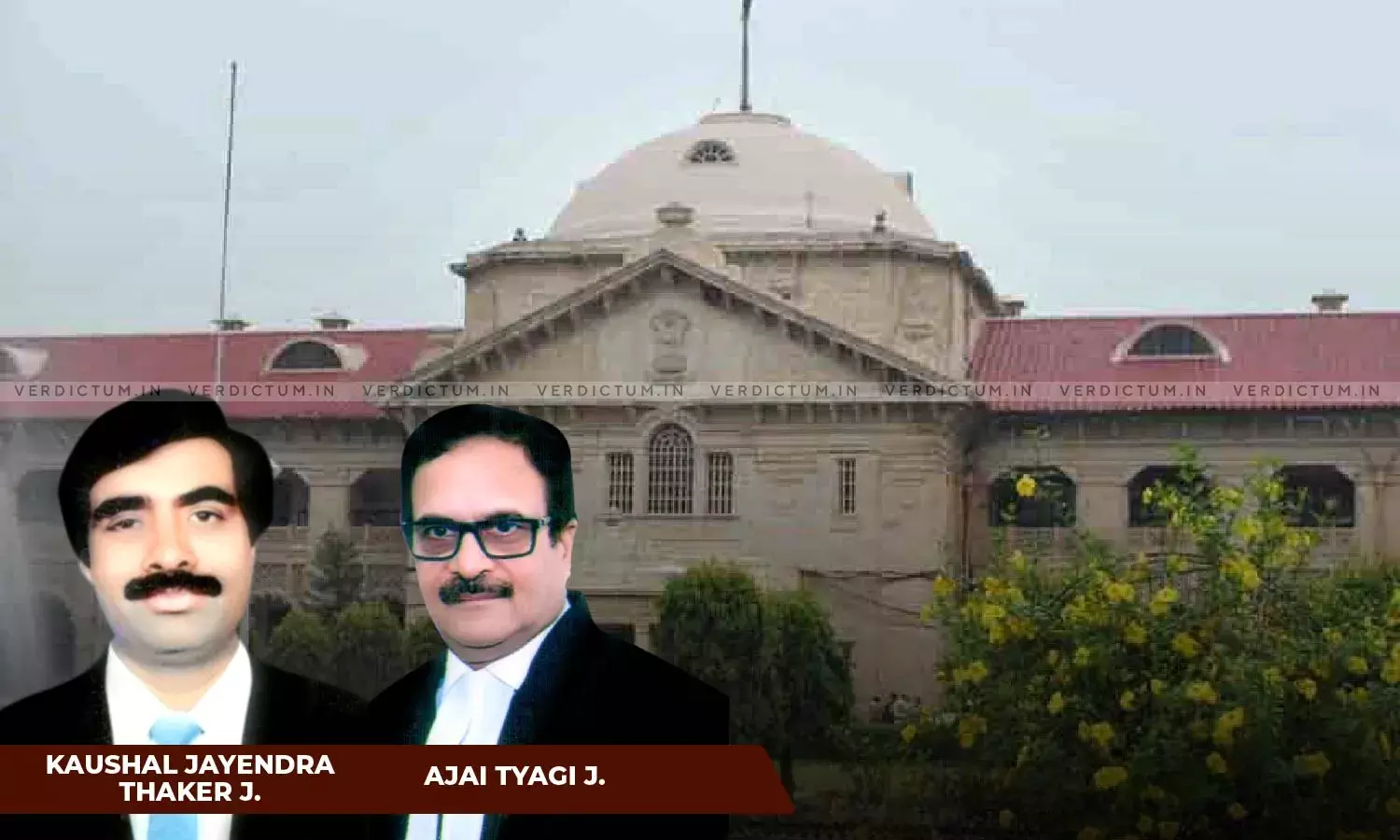Allahabad HC Acquits Rape Accused In Jail For 21 Years, Expresses Anguish Over Jail Authorities Not Considering Case For Remission

The Allahabad High Court while acquitting the rape accused who was in jail for around 21 years slammed the Jail Authorities of the State of Uttar Pradesh for not considering the case for remission even after the 14 years of incarceration was over, in the light of the directions of the Supreme Court as well as the High Court.
The Bench of Justice Kaushal Jayendra Thaker and Justice Ajai Tyagi held, "The evidence of doctor and the medical report does not show presence of any spermatozoa though the prosecutrix after lodging of F.I.R. was directly taken from police station for medical examination. No injury was found on her private part. In medical report of prosecutrix, some little abrasions were found on her hand and knee but it has been specifically mentioned in the medical report that these abrasions were three to four days old while the medical examination of prosecution was conducted on the very next day of the occurrence, hence, these abrasions cannot be linked with the alleged occurrence of this case."
The Bench further held –
"We, therefore, hold that no case for commission of offence under Section 376 read with Section 3 (2) (v) of IPC is made out. The judgment and order impugned to this appeal is set aside. The accused-appellant is acquitted from the charges leveled against him. We direct the jail authority concerned to set the accused-appellant free, if not warranted in any other offence."
Advocate Rakesh Dubey appeared for the appellant i.e., the accused. Government Advocate Vikas Goswami represented the respondent i.e., the State.
Brief Facts of the Case –
A complaint was made out by the husband of the prosecutrix to the Police Station Akbarpur, Kanpur Dehat stating that on February 9, 2001, at about 12.00 noon, when the prosecutrix went to her field for bringing silage for the cattle, the accused caught her from behind, knocked her down and started committing rape on her. On raising alarm by the prosecutrix, the informant along with his brother reached the place of the incident where they saw that accused was committing rape on her. It was alleged that the prosecutrix sustained injuries, and her glass bangles were broken. Based on the written report, the F.I.R. under Section 376 of IPC and Section 3 (2) (v) of the SC/ST Act came to be lodged against the accused. After lodging the F.I.R, the investigation was moved into motion. The prosecutrix got medically examined and the Investigating Officer, after taking statements from witnesses, submitted chargesheet against the accused under Section 376 of IPC and under Section 3 (2) (v) of SC/ST Act.
The Sessions Judge framed charges on the accused and thereafter, convicted the appellant. The appeal was listed in the year 2004 challenging the judgment and order passed by the Special Judge in which he was sentenced to life imprisonment with Rs, 5,000 fine but the same came to be condoned in the year 2008. From 2008 till 2022, the matter was never listed for hearing. The office did not prepare the paper book even after the lower Court's records were there.
The High Court noted –
"It is highly unbelievable that person who is going to commit grave offence like rape would ask caste and name of husband of prosecutrix before commission of crime. Hence, there is no evidence which goes to show that the offence by the appellant is committed on the ground that prosecutrix belongs to scheduled caste. … the learned Sessions Judge has convicted the accused-appellant where there was no evidence for commission of offence under Section 3 (2) (v) of The Scheduled Castes and the Scheduled Tribes (Prevention of Atrocities) Act, 1989. Neither the First Information Report nor the oral testimony of P.W.1 to P.W.5 even remotely suggest that the accused knew the prosecutrix. It is not worth believing that a person who want to commit sexual offence would enquire from the prosecutrix her name and her caste and then commit the unlawful act."
The Court while disagreeing with the lower Court stated that "The learned judge, unfortunately, no where has discussed about the ingredients of Section 375 of IPC. Rather, he has misread the evidence of P.W.3. The learned Sessions Judge has gone on the assumption that as saree was worn by the prosecutrix, there may not be any injuries. … The important aspects are non founding of spermatozoa and non finding of any kind of injuries which would permit us to upturn the judgment of learned Sessions Judge. There is no finding as far as commission of offence under Section 3 (2) (v) of SC/ST Act. Only on the ground that the prosecutrix and her family members belong to a particular community, can it be said that the offence has been committed? The answer is, No."
The Court at last directed, "The office has not prepared the paper book in this matter though the record was very much there in the year 2004. We, by this omnibus direction, direct Registrar (Listing) to impress upon the officer concerned to follow the decision of this Court in Vishnu (Supra) which are yet not being followed as even after 2021, the matters are not being listed. … Even if there is no direction of the Courts, under Section 433 of Cr.P.C. the authorities concerned are under an obligation to consider the case of the accused for remission."
Accordingly, the Court acquitted the accused and set aside the judgment and order passed by the lower Court.
Cause Title – Aftaf @ Nafees @ Pappu v. State of U.P.
Click here to read/download the Order


